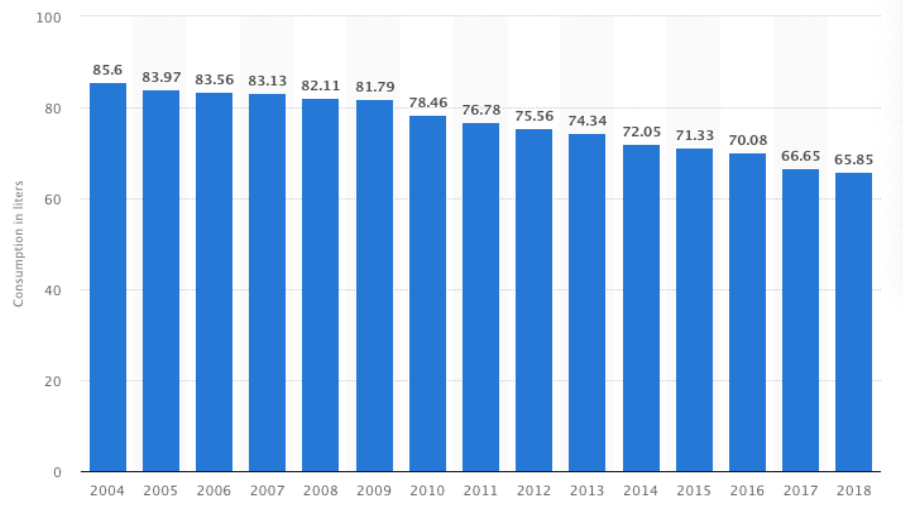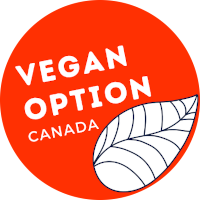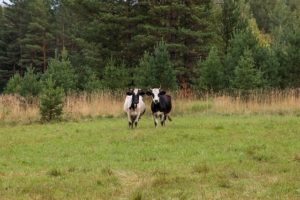To André Lamontagne,
Minister of Agriculture, Fisheries and Food
Subject: Vegan Option Canada Petition No. 1268-20191205 1
Dear Mr. Lamontagne,
I am writing to follow up on the governmental response that we at VOC received, through our petition sponsor Sol Zanetti. In your letter, (addressed not to us directly but to House Leader Simon Jolin-Barrette), you cited the document Politique Alimentaire 2018|2025, Alimenter notre monde, which, you say, aims to increase access to healthy, local and eco-responsible food in public places. I took the time to study this document (108 pages), but I could find much to nourish our petitioners’ desire to introduce vegan options in public places.
Nonetheless, I am taking the liberty of commenting on the document, which purports to be a living document and as such open to new ideas.
The first thing that I noticed is that the tone of the document is distinctly Neoliberal (that is, prioritizing economic growth). I found it odd that, although the document is dated 2018, the year that the Coalition Action Québec came to power, the document still contains the original introductions by the former Québec Premier, Philippe Couillard of the LPQ, and by Laurent Lessard, your predecessor in the MAPAQ.
This document seems to have many inconsistencies, which are revealed in its exploration of agricultural challenges (gathered from the Sommet sur l’alimentation of November 2017), the solutions to which would seem to be incompatible with economic growth. For example, the document points to the overuse of pesticides, which is a problem for human, animal, and insect health, as well as biodiversity. The obvious solution is organic agriculture, and small scale farming, which would not require pesticides… however, the document suggests instead that farmers continue to use pesticides, but use less noxious ones. This strange conclusion (in essence, doing the same thing, and expecting different results) reveals the underlying doctrine of growth, which disqualifies creative solutions, such as degrowth, deindustrialization, and the circular economy.
Rather than present examples of how this document fails to take into account present-day realities, which would take many pages and would be counterproductive, I will focus on one example of a creative policy that looks at solutions through the lens of present realities.
An innovative policy for Québec's dairy industry
As you know, the dairy industry everywhere is experiencing decline, as consumers turn towards plant-based alternatives, which many recognize is healthier for the human body and for the climate, since cattle produce methane, one of the most potent greenhouse gases. Even the Canada Food Guide has finally bowed to this reality, taking the radical step of removing dairy as a food group in its latest version. 2
Québec has more dairy farms than any other Canadian province, 5000 in all, and as you say in Politique Alimentaire, dairy and poultry farms account for 40% of all agricultural revenues in Québec.3 The Politique Alimentaire proposes supply management to help Québec dairy farmers who, like Albertans in the oil sector, are stuck with a product that is facing declining popularity in light of humanity’s evolving understanding of our relationship with the natural world. Supply management is an economic solution. What if, instead of working against the natural evolution of the market, we were to embrace the change?
Canadian cow milk consumption has declined steadily for decades, reaching a low of 65.85 litres per capita in 2018, a 23.1% decrease in the past 14 years.

Source: https://www.statista.com/statistics/438584/consumption-of-milk-per-capita-canada/
If Québec were to respond to this 23% decrease by decreasing its dairy production by 20%, it could be ahead of the curve. The MAPAQ could offer 20% of the Québec dairy farms—about 1000 farms–a tantalizing offer: to transform their business from dairy to plant-based milk production. Thus, these 1000 farms could sell off their herds, taking the land that are now used for growing cattle feed, and grazing cattle, and converting it to organic oat and soy production and processing. There are many benefits to this strategy:
- Farmers would be riding the wave of popularity of plant-based milks, and could expect good profits from their new business;
- Huge reduction in GHG emissions due to the reduced numbers of cattle;
- Reduction in the scope of animal suffering represented by the dairy industry;
- Reduced need for veterinarians and antibiotics, reduced danger of antibiotic resistance;
- Reduced possibility of zoonoses;
- Reduced use of pesticides, since Monsanto era corn fields would be replaced by organic crops;
- Increased yield of human food, since the fields used to grow cow corn would not be used to grow
It is also possible that with one thousand fewer dairy farms, there would be more money to go around on the remaining farms, and that smaller operators might have more of a chance of survival.
The MAPAQ could help Québec to become a world leader in plant-based milks! If Québec society continues to embrace plant-based milk and yogurt, the incidence of cancer would also likely drop, since dairy consumption has been implicated in breast cancer.
Import and Export
If the MAPAQ were to focus on local, organic, plant-based agriculture, we would have less need for imports, and the cost of importing food would go down. We could maintain the same net profits with less recourse to exporting goods. In other words, by eating local, we would spend less, which has the same net result as earning more. Fewer imports and exports would mean less GHG, and more self-sufficiency for Québec society.
The VOC petition
I am not going to repeat the logic of our petition in this space, but I invite you to read it once again.4 This petition asks for a very small concession—more vegan options in public spaces. We have big ideas for Québec, but we deliberately kept our “ask” very modest, the better to achieve concrete results. Vegan options in public places would help to break the unspoken doctrine of Carnism, the belief that eating meat and dairy is normal, natural, and necessary.5 It is none of these, and in fact, the continued adherence to Carnism is hurting animals, humans, and the environment. We are seeing that now in the COVID-19 pandemic. COVID-19 is a Zoonoses– an animal borne illness– that started because of a meat market, and continues because of globalization. Why not learn from this crises to begin to explore a governmental food policy that is based on LOV–Local, Organic, and Vegan food?
Representatives of VOC would be pleased to meet with you, Mr. Lamontagne, to discuss how the MAPAQ could show leadership and vision by promoting vegan options in public places, and other policies that would meet the needs of evolving social realities in Québec and in the world, ideas which are beyond the scope of this letter. We hope to hear back from you soon.
Sincerely,
Mrs. Cymry Gomery
Montreal, Québec
for Vegan Option Canada
1. Présentée au Salon bleu le 5 décembre 2019 : https://veganoptioncanada.org/petition-quebec/
2. https://guide-alimentaire.canada.ca/fr/
3. https://www.mapaq.gouv.qc.ca/fr/Publications/PolitiqueBioalimentaire.pdf page 49.
4. https://www.assnat.qc.ca/fr/exprimez-votre-opinion/petition/Petition-7991/index.html
5. https://fr.wikipedia.org/wiki/Carnisme


